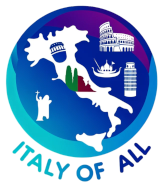The province of Macerata, located in the Marche region of central Italy, is celebrated for its rich cultural history, scenic landscapes, and significant educational institutions. Nestled between the Apennine Mountains and the Adriatic Sea, Macerata offers a picturesque setting that combines the charm of its hilltop towns with the beauty of its rural countryside.
Geographically, Macerata is characterized by a diverse landscape that includes coastal areas, rolling hills, and part of the Sibillini Mountains. This varied terrain provides not only stunning vistas but also a fertile ground for agricultural activities. The presence of both mountains and the sea within close proximity enriches the local climate and biodiversity, making the province an ideal location for both traditional agriculture and tourism.
Historically, Macerata has roots that trace back to Roman times but it gained prominence in the Middle Ages as a center of commerce and learning. The city of Macerata, the capital of the province, is home to one of the oldest universities in Europe, the University of Macerata, founded in 1290. This academic presence has fostered a rich intellectual life throughout the region. Architecturally, the province boasts numerous well-preserved historical sites, including theatres, palaces, and churches that reflect its past wealth and cultural importance.
Culturally, Macerata is known for its vibrant arts scene, exemplified by the annual Macerata Opera Festival held in the Arena Sferisterio, a neoclassical open-air opera house that offers a unique and spectacular setting for performances. The province also hosts various other cultural events and festivals that celebrate its historical and artistic heritage, engaging both locals and visitors in the rich traditions of the Marche region.
Cuisine in Macerata mirrors the agricultural richness of the area, featuring dishes that are rooted in both land and sea ingredients. Local specialties include “vincisgrassi,” an opulent lasagna layered with local meats, béchamel sauce, and truffles. Olive oil and wines, such as Verdicchio and Rosso Conero, are also prominent, celebrated for their quality and integral to the dining experience. The rural areas offer a variety of legumes, pork products, and cheeses that define the local culinary landscape.
Economically, Macerata’s economy is supported by a blend of agriculture, manufacturing, and services. Agriculture remains a cornerstone, with a focus on olive oil production, winemaking, and the cultivation of fruits and grains. Additionally, the leather crafting and footwear industries are significant, continuing a long tradition of artisanal excellence. Education and tourism also play vital roles in the local economy, driven by the province’s universities and its appealing natural and cultural attractions.
Despite challenges such as economic diversification and the need to balance development with preserving its cultural and natural assets, Macerata is actively engaged in promoting sustainable tourism and supporting local artisan industries as part of its economic strategy.
Overall, the province of Macerata offers a compelling mix of historical depth, cultural richness, and natural beauty. Its commitment to fostering sustainable development while maintaining its cultural heritage ensures its continued relevance and allure as a key destination in the heart of Italy.
Comuni in Macerata Province:
- Bolognola
- Acquacanina
- Belforte del Chienti
- Apiro
- Appignano
- Camporotondo di Fiastrone
- Castelsantangelo sul Nera
- Camerino
- Caldarola
- Castelraimondo
- Corridonia
- Civitanova Marche
- Fiuminata
- Cingoli
- Cessapalombo
- Colmurano
- Fiastra
- Loro Piceno
- Matelica
- Macerata
- Muccia
- Montelupone
- Monte San Martino
- Morrovalle
- Montefano
- Monte San Giusto
- Mogliano
- Montecassiano
- Montecosaro
- Porto Recanati
- Pollenza
- Ripe San Ginesio
- Pioraco
- Recanati
- Potenza Picena
- Pieve Torina
- San Ginesio
- Sant’Angelo in Pontano
- Serrapetrona
- San Severino Marche
- Serravalle di Chienti
- Sefro
- Sarnano
- Ussita
- Urbisaglia
- Visso
- Treia
- Tolentino
